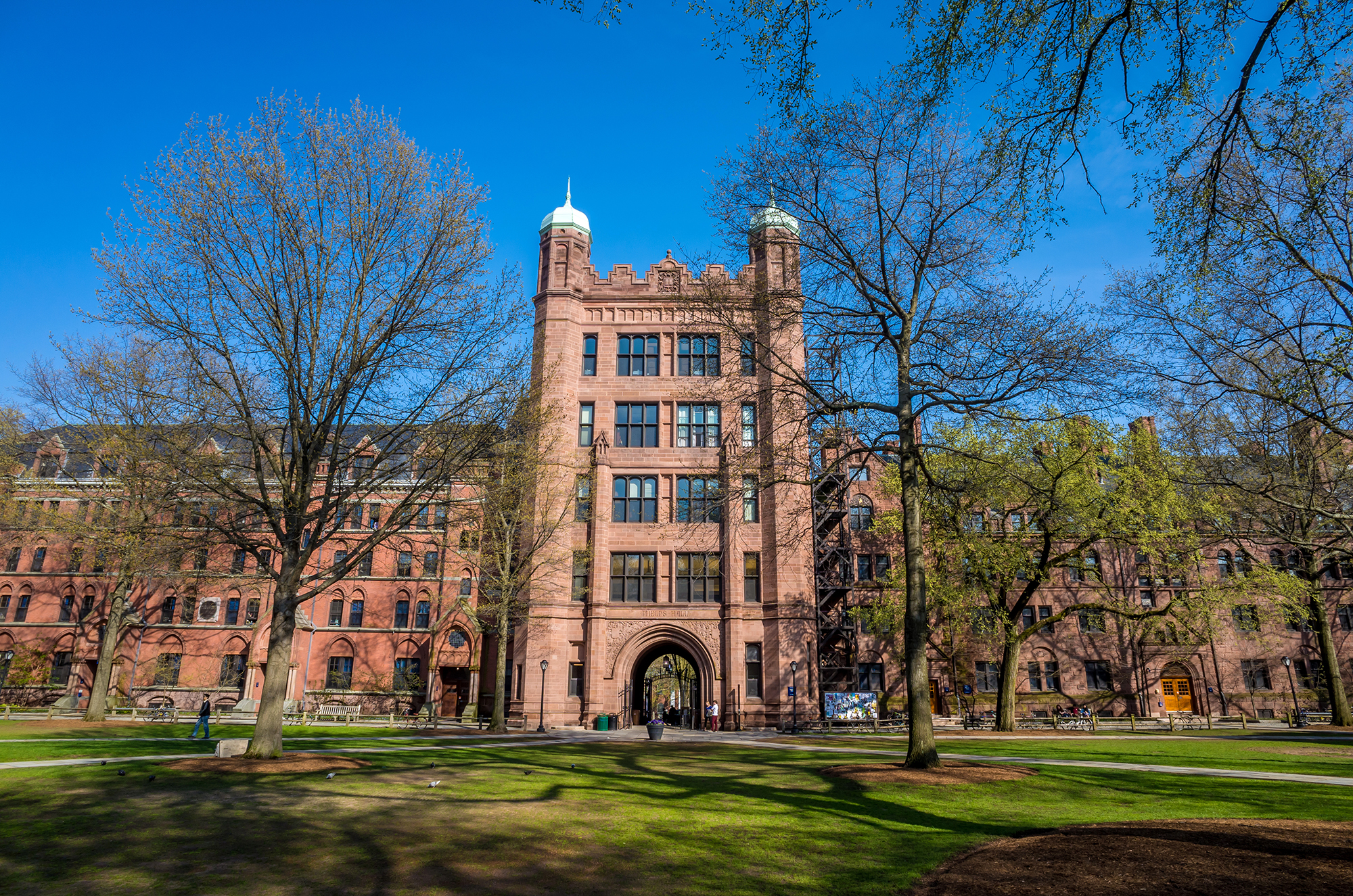New MBA Jobs at Four Tech Companies Making Big Announcements

Some of the world’s largest tech companies made waves recently with exciting, and in some cases game-changing, announcements at and around the 2019 Game Developers Conference. These new ideas, products, and services were developed by teams comprised of developers, marketers, and MBAs brought on to bring innovation to the table. Continue reading…
New MBA Jobs Munchies

According to the New Zealand Institute for Plant & Food research, the global food and beverage industry is growing at around 5 percent annually, with the global expenditure on products by consumers expected to reach $20 trillion by 2030. Key trends for innovation and product development are in health, convenience, naturalism and sustainability. Where there is a need for innovation in an industry, there are new MBA jobs. Continue reading…
Pharma Careers Highlight This Week’s Newest MBA Jobs

As modern medicine and healthcare continues to advance, healthcare providers and pharmaceutical manufacturers require new hires with analytical abilities, business acumen and problem solving skills to help innovate. MBAs will be relied on to lead these firms, the miracle drugs they produce, and the lives they serve, into the future. Here are just a few new MBA jobs currently available in the healthcare provider and pharmaceutical fields. Continue reading…
By the Numbers: The World’s Most Valuable MBA

There are many different ways to define “lucrative”—so when trying to find the world’s most valuable MBA degree, there are a few different metrics you can use to draw a conclusion. Lucky for us, the new Financial Times global MBA ranking manages to list the world’s top MBA programs in (almost) every way imaginable, including highest weighted salary, salary increase, and value for money. Sounds lucrative to me! Continue reading…
Top Deferred Enrollment MBA Programs Geared Toward Younger Candidates

Most of the time, full-time MBA programs require work experience and, overall, class averages of professional experience are close to five years. Rarely are programs open to younger candidates who are still pursuing their undergraduate degrees. However, that all changes when it comes to deferred enrollment programs.
These programs guarantee senior undergraduate students a spot at some of the top MBA programs in the world, two to five years after they graduate. This means that you graduate with a plan for the future and the time to figure out the details.
Recently, MIT Sloan announced a new deferred enrollment program, joining the ranks of other top b-schools including Chicago Booth, Columbia Business School, Harvard Business School, Stanford GSB, UVA Darden, The Wharton School, and Yale School of Management. Each of these programs is set up similarly and vies for top talent at undergraduate schools around the world.
How Deferred Enrollment Programs Work
“This type of program is for those who know that an MBA program is something they want to pursue, in the future. Not directly after their undergraduate degree (in most cases), but a couple of years later,” explains Alex Brown, an MBA admissions expert at Clear Admit.
Ambitious undergraduate students apply to b-school during their senior year and then receive a promise of a seat in a future cohort. Typically, students gain two to five years of work experience between acceptance and starting the MBA. Then, after their deferral, they join the same MBA cohort as the traditional full-time MBA.
“By applying and gaining admission, it helps reduce the uncertainty of their plan, going forward. So rather than entering an analyst program at a consulting firm, for example, with the hope of gaining admissions to a top MBA program after a few years, they can enter the analyst program knowing they have an MBA option already,” Brown says. “Of course, it doesn’t stop them from changing their mind, or pursuing other MBA options, and forgoing the early admission.”
These deferred enrollment programs are ideal for future leaders. Typically candidates have outstanding internships, strong academic credentials, and high test scores when they apply. “Also, these candidates are still typically early in their career arch when they do attend their MBA program. But, it makes sense if they are focused and really understand how the MBA program will help develop their career further,” explains Brown. “It’s good for candidates with focused career goals.”
Additionally, it’s important to note that deferred admissions MBA programs are designed to attract different types of students. They want candidates who might not typically have business school on their radar, but come from a STEM or humanities background. The key for applicants is to have a solid plan for the future and knowledge of how the MBA fits into that plan.
So, what are some of the top deferred enrollment programs and how are they unique?
Deferred Enrollment at a Glance
At a glance, most of the top b-schools offer very similar MBA programs geared toward younger candidates. All but Yale SOM are two years in length and place students in the same cohort as the full-time MBA. On the other hand, the Yale Silver Scholars program is three years in length with the first and third year being the same as the standard MBA and the second year in an extended internship. The reason behind this difference is that the program accepts candidates directly after their undergraduate career without any work experience.

The Yale Silver Scholars is one of the many MBA deferment programs offered at some of the best business schools in the world.
The rest of the programs encourage students to take two to five years off to gain work experience before they start their MBA. However, in some cases, work experience is not necessary if acceptance is during their final year (fifth year) of graduate school, such as is the case for Stanford’s deferral program.
“Generally, the students co-exist in the same program,” explains Brown. “Younger students might have more energy and enthusiasm, older candidates might have more experience and insights. It can become a great blend for an academic experience.”
Other stand-out differences include the fact that the Wharton Moelis program is only for University of Pennsylvania students. Sloan allows MIT students with an undergraduate GPA of 4.25 to avoid the GMAT, and Darden and Wharton both include scholarships for their deferred programs.
Finally, you can expect to apply to each of these programs in April, around the Round Three MBA application deadline, though Darden uniquely offers three application deadlines.
Inside the Top B-Schools with MBAs Geared Toward Younger Candidates
The differences between the programs lie in the characteristics and incentives offered by each. Here’s a deeper look at some of the top offers, who can apply, and how it works.
• Chicago Booth Scholars Program
The Chicago Booth Scholars program is for candidates with three or fewer years of full-time post-undergraduate work experience. It’s open to undergraduates from any institution in their senior year, granting applicants a two to four-year deferment before starting the MBA program. While working full time, students have the opportunity to engage with Booth, explore the community, travel, and whatever else is of interest. Applications are due in April and are similar to the full-time MBA application.
• Columbia Business School Deferred Enrollment Program
The Columbia Business School Deferred Enrollment program is open to undergraduate and graduate students who apply during their final year of schooling. Once accepted, you can take two to five years to enter the workforce and start the full-time MBA program when it’s right for you. Applications are similar to the full-time MBA program with slightly different short answer questions and are due in April. Once you decide to matriculate, you join the full-time MBA program.
• Harvard Business School 2+2 Program
Harvard’s 2+2 program is the best-known deferred MBA of its kind. Candidates apply in their final year of undergraduate or graduate school, then spend a minimum of two years (maximum of four) working full-time before they begin their full-time, two-year MBA program. This program is specifically for students working in the public, private, or nonprofit sector with an emphasis on STEM and humanities disciplines. The application is essentially the same online application for the MBA program; the application fee is simply lower. The admissions deadline is in April. Candidates enter the full-time MBA program once they have met work experience requirements.
• MIT Sloan MBA Early Admission
The MIT Sloan MBA Early Admission program is open to any exceptional undergraduate student. However, MIT students can avoid the GMAT with a GPA above 4.25. You can apply your senior year or directly after graduation in either your undergraduate or graduate academic career. Applications are due in April, and between acceptance and starting the program, candidates may seek two to five years of full-time work experience. Once matriculating, students enter the same MBA full-time program.
• Stanford GSB Deferred Enrollment
The Stanford GSB Deferred Enrollment program is open to undergraduate students who want to begin their MBA immediately after their senior year. However, students can defer for one to three years to gain work experience. You can apply during any of GSB’s three application rounds and can choose which year’s MBA program you’d like to enter. If you decide to defer for one to two years, you can apply for specific fellowships the year before starting your full-time MBA.
• UVA Darden FYSP
The UVA Darden FYSP program is open to undergraduate students in their final year and fifth-year master’s students. Candidates can apply in March, May, and August, and once admitted begin their professional journey. They ear two to four years of work experience and gain access to the Darden alumni community for mentorship, networking, and individualized career support. Then, once ready, candidates join the regular full-time MBA program with a guaranteed scholarship in hand.
• Wharton Moelis Advance Access Program
The Wharton Moelis program is a feeder program only for University of Pennsylvania undergrads. Students accepted into the program receive special professional development, career services, and access to the Wharton community such as annual retreats, mentoring, and a potential $10,000 a year fellowship. You apply senior year during Round 3 MBA admissions, and with evaluation similar to the overall MBA pool. You defer for two to four years of work experience and then join the regular two-year, full-time MBA program when you’re ready.
• Yale SOM Silver Scholars
The Yale Silver Scholars program was initially created just for Yale undergrads, but now recruits from an international talent pool. The difference with this program is that students start their MBA immediately after college graduation. You spend one year taking core curriculum before your full-time extended internship in year two. Then, your third year, you return to Yale SOM to complete your degree. Students integrate into the Yale SOM MBA, but have special programming and career development tailored to them. Candidates apply their senior year and fill out the same full-time MBA application.
This article has been edited and republished with permissions from its original source, Clear Admit.
School vs. School: Yale SOM or SC Johnson Cornell?

Deciding which school you’ll attend for your MBA isn’t easy. There are many factors that come into play when choosing the best school for you. You might be most concerned about where and what you want to study, or you could care more about reputation, alumni network, ROI, or even the application process.
Unfortunately, this comparison process can get quite tricky when looking at two very similar schools. To help you out, our School vs. School series does the heavy lifting for you. Take a look at two of the best b-schools Yale SOM and SC Johnson Cornell to see which is best for you.
Yale vs. Cornell: Location
Yale SOM is located in New Haven, Connecticut while SC Johnson Cornell is in Ithaca, New York. In both instances, the schools are located in smaller towns where one-of-a-kind shops, boutiques, and activities rule the day. Neither location is a place where an MBA would look for a job post-graduation, but both are just a little ways outside of New York City. New Haven is under two hours away by car while Ithaca is around four hours away.
As for which town is better:
- Cost of Living: Ithaca is 2 percent less expensive than New Haven.
- Housing: Ithaca housing costs 34.4 percent more.
- Education: New Haven spends 4 percent less per student, and the student to teacher ratio is 17.3 percent higher in New Haven.
- Commute: New Haven residents commute 42 percent more than residents of Ithaca.
- Jobs: Future job growth for New Haven is 19.38 percent compared to Ithaca, which is only 2.24 percent. Both are lower than the entire U.S., which is 30.54 percent.
Overall, Ithaca is a more affordable place to live, but you’re less likely to find a job in Ithaca after graduation.
Yale vs. Cornell: Rankings
Yale SOM and SC Johnson Cornell are both top business schools in the world. Each ranks highly across all publications with Yale SOM just edging out SC Johnson Cornell in most rankings.
Yale and Cornell School Rankings
| Publication | Yale SOM | SC Johnson Cornell |
|---|---|---|
| U.S. News & World Report | 11 | 15 |
| The Economist (Global) | 14 | 17 |
| Financial Times (Global) | 11 | 27 |
| Forbes | 13 | 10 |
| Bloomberg Businessweek | 12 | 11 |
Yale vs. Cornell MBA: The Cost
Each business school costs about the same on a per-year basis. Tuition is not even $3,000 more at Yale, and when you add on the increased cost-of-living, Yale is just $5,000 more per year than Cornell. Where Cornell saves the most is in housing and food, which is only $16,800 a year compared to Yale’s distressing $22,214.

When it comes to living on campus, Yale students are emptying their wallets more, paying an average annual rate of more than $22,000.
However, when it comes to funding, Yale SOM wins. One in every two Yale SOM MBA students earns a merit scholarship. Even better 29 Yale MBA students end up with full-tuition scholarships. On the other hand, only 30 percent of Cornell SC Johnson students receive some scholarship assistance. However, there are many full-tuition scholarships available including 25 Park Leadership Fellowships.
Yale and Cornell School Costs
| Cost | Yale SOM | SC Johnson Cornell |
|---|---|---|
| Tuition | $72,350 | $69,440 |
| Full Cost | $100,274 | $95,340 |
Yale vs. Cornell: Post-Graduation Employment
When it comes to post-graduation, both Yale SOM and Cornell SC Johnson MBA students can expect many opportunities for success. About 94 percent of Cornell MBA students and 91.9 percent of Yale SOM graduates have a full-time job offer three months after graduation.
Those graduates enter a range of industries with the top industries being consulting, finance, and technology. Consulting was the top industry at Yale SOM whereas Cornell students preferred finance. In both cases, most students chose to stay in the Northeast U.S. with 55 percent of Cornell graduates staying in the area and 48 percent of Yale graduates.
Yale vs. Cornell Employment
| Industry | Yale SOM | SC Johnson Cornell |
|---|---|---|
| Consulting | 34.9% | 22% |
| Finance | 23.1% | 29% |
| Tech | 14.9% | 18% |
As for post-graduation salary, both schools are on par with each other. Graduates can expect to earn slightly over $125,000 after graduation with a bonus of around $30,000.
Yale vs. Cornell Salary
| Salary | Yale SOM | SC Johnson Cornell |
|---|---|---|
| MBA Graduate Median Base Salary (2018) | $127,100 | $126,353 |
| Median Signing Bonus | $30,000 | $33,503 |
Inside Yale SOM
Located in New Haven, Connecticut, Yale SOM is one of the top business school’s in the country. Its proximity to New York City means that MBA students have access to many highly coveted networking, partnership, and placement opportunities in one of the business hubs of the world. Its programs are ranked in the top 15 in the world across all international and U.S.-based MBA rankings, regularly placing 11th overall.
Program Offerings
- Full-Time MBA: The two-year, full-time MBA program at Yale SOM requires students to earn 72 credits—39 of which are electives.
- EMBA: The 22-month Executive MBA program at Yale offers classes on alternating weekends (Friday and Saturday) and is ranked first in the world according to The Economist.
There are also multiple joint degree opportunities. MBA students can pursue a joint degree with Yale Law School, Yale School of Medicine, the Yale School of Forestry & Environmental Studies, and the Yale School of Architecture.
Why Yale SOM?
- Yale SOM emphasizes “raw” online cases. These cases attempt to capture the complexity of real decision-making.
- MBA students can participate in 50-plus student clubs on a variety of topics from leadership to social venture.
- Yale MBA students are required to complete an international component, including a 10-day trip to one or more countries. The school is also a part of an exchange program with the London School of Economics, HEC Paris, IESE, National University of Singapore, and Tsinghua University School of Economics.
Inside SC Johnson Cornell
Located in Ithaca, New York, the SC Johnson College of Business at Cornell University is one of the best business schools in the world. It regularly ranks in the top 25 schools globally and the top 15 schools nationally. Its proximity to NYC means that students have many opportunities for networking, internships, and more.
Program Offerings
- Two-Year MBA: The two-year, full-time MBA program at Cornell includes more than 4,000 elective courses from any of Cornell’s top-ranked schools.
- One-Year MBA: The One-Year MBA is designed for students who have already earned a certification or are enrolled in a dual degree program.
- Tech MBA: The Tech MBA program is a 12-month program in the heart of New York City on Roosevelt Island. The curriculum is split into module and studios.
- EMBA NY: The Executive MBA program is 22 months in length and requires students to complete 60 credits every other weekend on Saturday and Sunday.
There are also multiple dual degree programs including a JD/MBA and an MS/MBA. Other dual degree opportunities include a degree in Industrial and Labor Relations, Real Estate, and Health Administration.
Why SC Johnson Cornell?
- Cornell SC Johnson offers eight immersion opportunities. These courses and their projects/cases are based on a specific career path and industry.
- Students have access to more than 120 electives across a range of concentrations. There are also more than 80 professional, regional, and diversity clubs students can join.
- Global learning is not a requirement. However, there are a large number of international business learning opportunities, including international study trips and an international exchange program.
For additional insight, be sure to check out the news at both Yale and Cornell.
